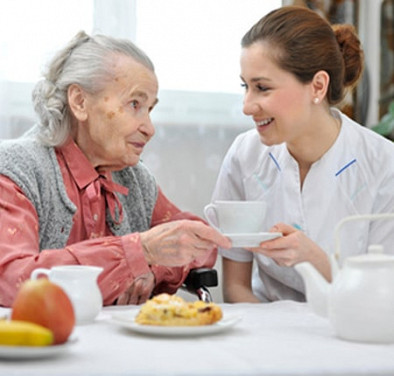As temperatures soar during the scorching summer months, the impact on our health and well-being becomes a critical concern. Beyond the discomfort of sweaty brows and sunburned skin, extreme summer heat can pose serious risks to our physical and mental health.
 Physiological strain:
Physiological strain:
The human body relies on a delicate balance to function optimally, and soaring temperatures can disrupt this equilibrium. High temperatures often lead to dehydration as our bodies lose fluids through perspiration at an accelerated rate. This dehydration, if not addressed promptly, can result in heat-related illnesses such as heat exhaustion or, in severe cases, heatstroke.
Heat-related illnesses manifest through symptoms like dizziness, rapid heartbeat, nausea, and confusion. Vulnerable populations, such as the elderly and individuals with pre-existing health conditions, are particularly susceptible to the adverse effects of extreme heat.
Cardiovascular challenges:
Find YOUR ideal care home NOW!
The cardiovascular system faces added stress during heatwaves. As the body works to cool itself down through increased blood circulation and sweating, the heart has to pump harder. This increased demand on the cardiovascular system can be problematic for individuals with heart conditions, potentially leading to complications.
Impact on mental health:
Beyond the physical toll, extreme summer heat can also affect mental well-being. Studies have shown a correlation between high temperatures and an increase in irritability, anxiety, and even aggression. Sleep patterns may be disrupted, contributing to fatigue and overall feelings of lethargy.
Moreover, the societal impacts of extreme heat, such as strained energy resources and potential economic challenges, can further contribute to stress and mental health concerns at the community level.
Vulnerable populations:
Certain demographic groups are at higher risk during extreme heat events. The elderly, young children, individuals with chronic illnesses, and those living in urban heat islands may face heightened challenges. Accessibility to cooling centers, adequate hydration, and awareness campaigns become crucial in safeguarding the well-being of these vulnerable populations.
Mitigation strategies:
To mitigate the health risks associated with extreme summer heat, it is essential to adopt proactive measures. Staying hydrated, seeking shade, and avoiding strenuous activities during peak heat hours are simple yet effective strategies. Communities and cities can invest in cooling infrastructure, such as public spaces with shade and water features, to provide relief.
Individuals are also encouraged to keep an eye on vulnerable friends, family members, and neighbors during heatwaves, ensuring they have access to cool environments and are staying properly hydrated.
Tips to stay cool during extreme heat
| Tip | Description |
|---|---|
| Hydrate Regularly | Drink water throughout the day, even if not thirsty |
| Avoid Outdoor Activities | Limit strenuous activities during peak heat hours |
| Use Cooling Devices | Utilize fans, air conditioning, or cooling towels |
In conclusion, while summer brings the joys of outdoor activities and sunshine, it is crucial to recognize and address the potential health impacts of extreme heat. By understanding the risks, implementing preventive measures, and fostering community awareness, we can navigate the summer months with greater resilience and well-being.
Senior Home Plus is here to help you choose a care home or facility best suited to your needs. Do not hesitate to contact us on the following number: 0230 608 0055 or fill out this form.
FAQ:
What are the common health issues caused by extreme summer heat?
Extreme summer heat can lead to dehydration, heatstroke, heat exhaustion, sunburn, and in severe cases, heat-related illnesses that may require medical attention.
How can I prevent dehydration during extreme heat?
To prevent dehydration, drink plenty of water, consume electrolyte-rich fluids, avoid caffeinated drinks, and eat water-rich fruits like watermelon and cucumber.
Who is most vulnerable to extreme heat?
The elderly, infants, young children, outdoor workers, and individuals with chronic medical conditions are the most vulnerable to the effects of extreme heat.
What are the symptoms of heat exhaustion?
Symptoms include excessive sweating, nausea, dizziness, fatigue, headache, and a rapid pulse. If untreated, it can progress to heatstroke.
What is the difference between heat exhaustion and heatstroke?
Heat exhaustion is a milder condition with symptoms like dizziness and fatigue, while heatstroke is more severe, with symptoms such as confusion, a high body temperature, and loss of consciousness.
How does extreme heat affect people with chronic illnesses?
People with chronic illnesses such as heart disease, diabetes, or respiratory issues may experience exacerbated symptoms during extreme heat, as it puts additional stress on the body.
What should I do if I suspect someone has heatstroke?
Move the person to a cooler area, provide cold compresses, give them sips of water (if conscious), and seek medical help immediately.
Can extreme heat affect mental health?
Yes, prolonged exposure to extreme heat can lead to increased irritability, stress, and anxiety. It may also worsen symptoms in individuals with pre-existing mental health conditions.
What clothing should I wear during extreme heat?
Wear lightweight, loose-fitting, light-colored clothing to help keep your body cool and protect your skin from direct sunlight.
How does extreme heat impact sleep?
Hot temperatures can disrupt sleep by making it harder for the body to cool down, leading to restlessness and reduced sleep quality.
Are there any dietary changes I should make during extreme heat?
Consume hydrating and cooling foods like fruits, vegetables, and yogurt. Avoid heavy, greasy meals that can increase body temperature.
How can I keep my home cool during extreme heat?
Use fans, air conditioning, blackout curtains, and ensure proper ventilation. Avoid using heat-generating appliances during peak hours.

